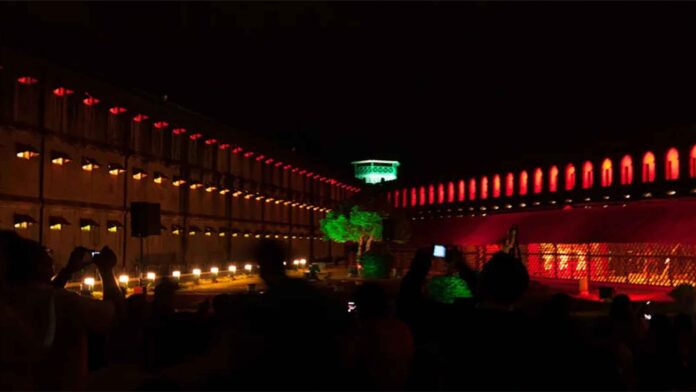The Tourism Department of the Andaman & Nicobar Administration is set to host a heritage tourism lecture on August 9 that will explore the layered history of one of India’s most iconic monuments, the Cellular Jail. The session, titled Echoes of the Past, Colonial Footprints: Cellular Jail and the Freedom Struggle – A Living Memory, will be delivered by noted historian and author Rashida Iqbal at 11 am in the Conference Hall of the Directorate of Disaster Management, Sri Vijaya Puram.
Designed to promote tourism during the off-season while deepening public understanding of the Islands’ heritage, the event will highlight the dual identity of the Cellular Jail as both a colonial prison and a symbol of India’s independence movement. Rashida Iqbal, known for her extensive research on the freedom struggle and the historical significance of the Andaman & Nicobar Islands, will guide attendees through the site’s transformation from a place of oppression to a national memorial.
The lecture will delve into the historical context that led to the construction of the Cellular Jail in the early 20th century. Built by the British colonial administration to house political prisoners, the jail became synonymous with extreme isolation and hardship. Many prominent freedom fighters, including Batukeshwar Dutt and Veer Savarkar, were incarcerated here, enduring solitary confinement and forced labour.
By revisiting these narratives, the session aims to connect past struggles with present-day perspectives on freedom, resilience, and national identity. The Tourism Department has positioned the event as an opportunity for both residents and visitors to gain insights that go beyond the surface-level understanding of the monument as a tourist attraction.
The initiative is part of a broader push to promote heritage tourism, an approach that focuses on engaging visitors with authentic historical experiences.
Students, historians, researchers, and tourists have been invited to attend, with the hope of fostering dialogue on how historical sites like the Cellular Jail can be preserved while remaining accessible to the public. The department views this lecture as a pilot for similar events in the future, aiming to create a calendar of heritage-focused activities.
The Cellular Jail, declared a national memorial in 1979, remains one of the most visited sites in the Islands. While its light-and-sound show and museum exhibits already provide glimpses into its past, the upcoming lecture will offer a deeper, more nuanced exploration of its legacy. The goal is to leave participants with a richer understanding of why this monument remains central to the national consciousness.
The August 9 heritage tourism lecture promises not just a history lesson, but a conversation about how the past continues to shape the present and the future of the Andaman & Nicobar Islands. By spotlighting the Cellular Jail’s story, the Tourism Department aims to reaffirm the importance of preserving and interpreting the nation’s historical treasures.





